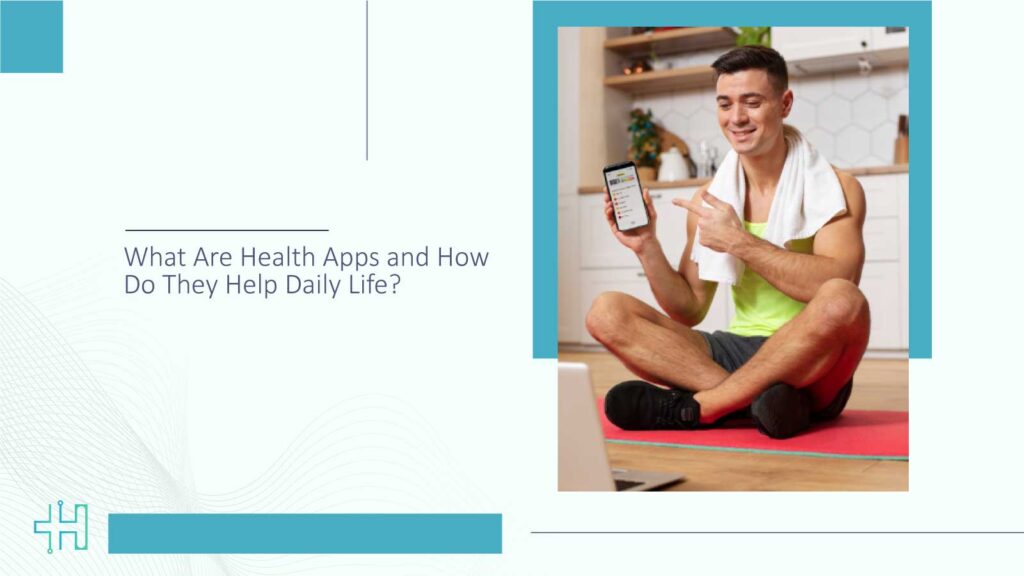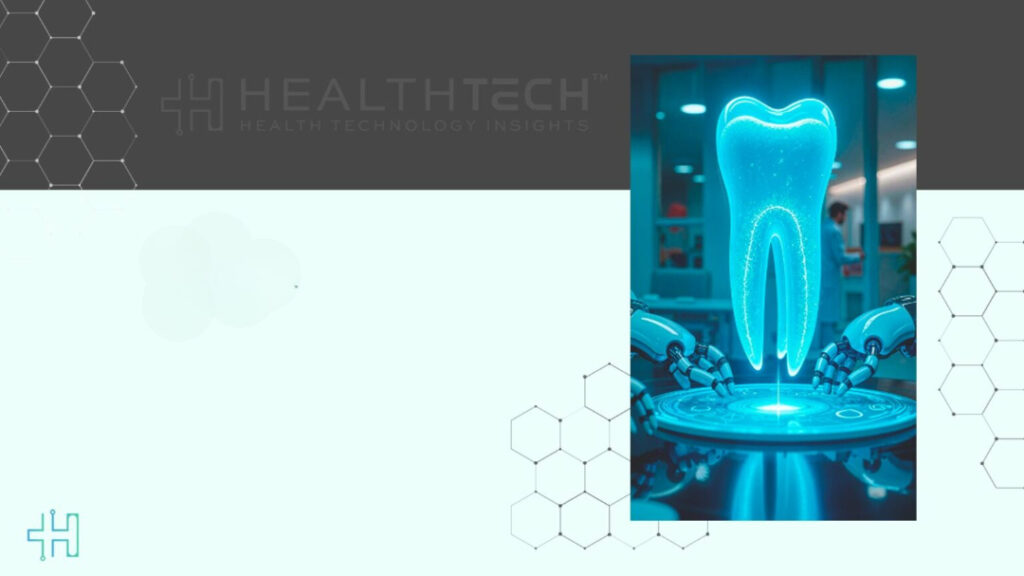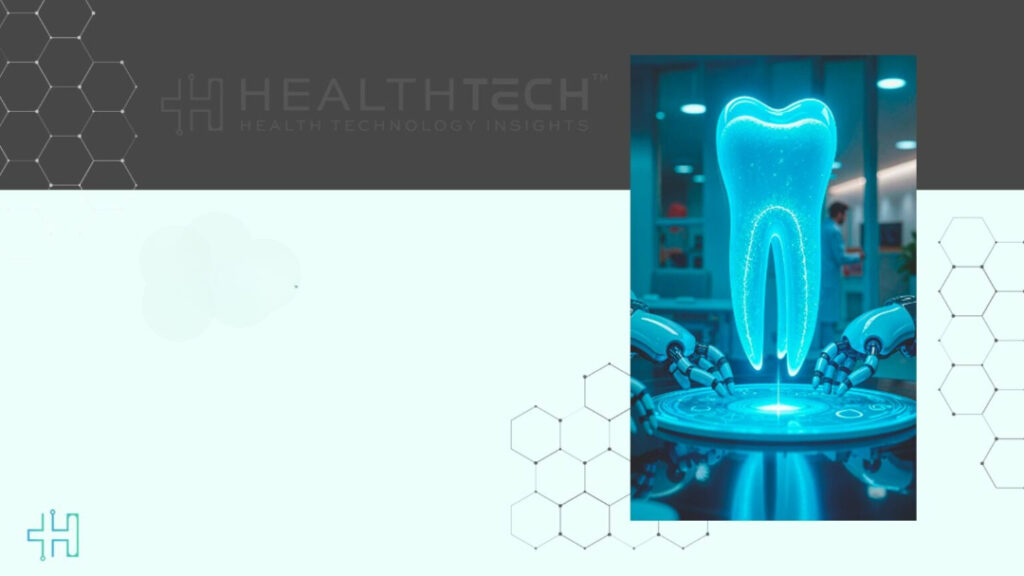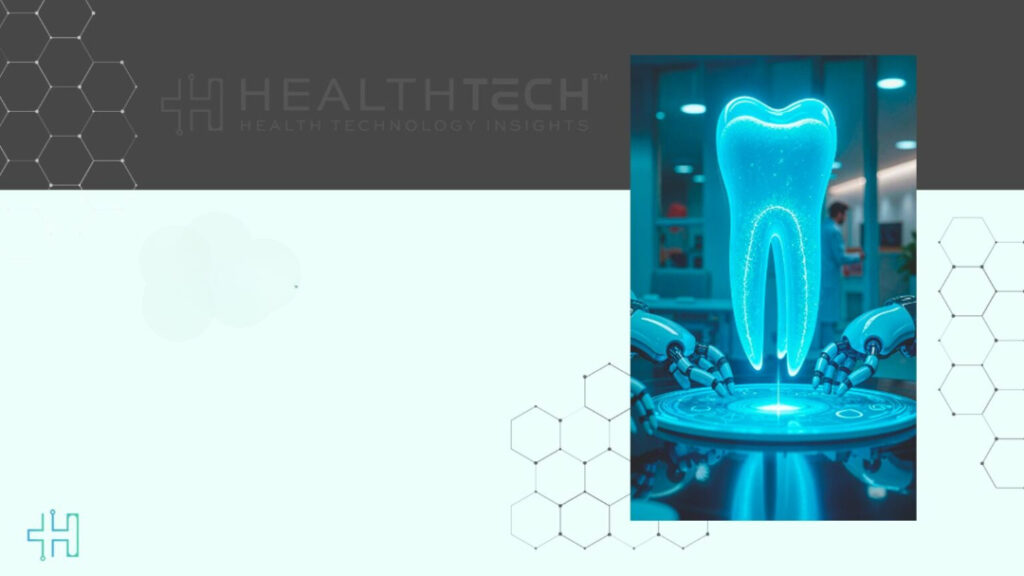Health apps have made it so that you can wake up and use your phone to check how well you slept, log how much water you’ve drunk, get reminders about your medications, and do a mindfulness session that is short and simple. Not only that, but these types of procedures can be part of anyone’s daily routine in no time at all. The global mHealth apps market size was estimated at USD 37.5 billion in 2024 and is projected to reach USD 86.37 billion by 2030, growing at a CAGR of 14.8% from 2025 to 2030.
Regardless of whether you want to shed some kilos, keep your health under control if you have a disease, watch over your fitness, or just calm yourself, there is probably an app that is suitable for all of that. We have seen the trend over the past few years: Health apps are changing the way we see our own well-being. They are putting part of the responsibility that used to be for health professionals in our hands instead. Then, what are health apps? And how do they impact our daily lives?
What are Health Apps?
Health apps (or mobile health apps, mHealth apps) refer to software programs that work on smartphones, tablets, or other mobile devices. They encourage users to undergo health checkups, keep a health journal, or improve their health status, as well as general wellness. Some major ramifications are:
- Fitness and activity tracking: Variables like steps walked, heart rate, or the type of activity done can be tracked.
- Nutrition and diet: Measures and data recording, suggestions for the next meal, and achieving the desired diet type.
- Sleep and rest: Sleep-monitoring, sleep-quality regeneration.
- Mental health and mindfulness: Training, battery removal, thought records.
- Chronic disease management: It is a complex tool for diabetes, hypertension, asthma, etc., which generally has medication reminders and symptom or reading records.
- Women’s health: Female cycle tracing, fertility, pregnancy progress.
- Telemedicine/virtual care: remote diagnosis, sharing patient history.
A large number of applications also link with wearable (smartwatch, fitness bracelet, radio sensor) to access continuous or passive host data, thereby making the monitoring easier.
Ways Health Apps Help in Everyday Life
There are practical effects why we should use health applications, among these, in general, they give the easiest ways for people to put their lives in order. To be more specific, here are some of the main reasons:
1. Promoting awareness and motivation
By looking at certain figures, such as our physical performance, diet, or sleeping, we become more aware of our habits. Practicing this new consciousness, the small changes will accumulate over time: more walks, eating better, and better sleep hygiene.
2. Consistency and habit formation
Mobile software will most probably generate some notifications (reminders for exercising, intake of the drug, drinking of water), give you the possibility to set new objectives, and let you track your development through progress. The establishment of habits requires the simultaneous use of repetition, feedback for the new habit, and sometimes external hints; for all of these, health apps fit perfectly.
3. Personalization
Some apps even tailor data to the user’s specific situation, like the user’s weight, age, and set health goals, which include tackling existing diseases, if any. In short, based on glucose, diet, and exercise tracking, an app can recommend that you modify how you do these activities, or even warn you if a trend is becoming unfavorable.
4. Support for chronic illness
Patients with certain chronic diseases, like diabetes, hypertension, and heart disease, can benefit from recording and sharing the readings with their doctors. In this way, there is less chance of unexpected emergencies and thus better health outcomes.
For example, medication reminders that are set on time can be the main reason for sleepless nights for a patient, preventing him/her from missing a dose or doses completely. On the other hand, how the trend gets tracked might work towards predicting the possible cause of the patient’s symptoms.
5. Mental health and well-being
Several stress-relief, meditation, and mood-tracking apps may alleviate anxieties, help with restful sleep, and contribute to emotional health. Besides giving one access to the tools of reflection, mindfulness, and sometimes the professionals and communities, the apps also do these things.
6. Convenience and access
There are numerous things you can accomplish while being at home, such as scheduling telehealth appointments, gaining access to medical records, tracking health metrics, and seeking advice. This is the perfect scenario for a person who lives in a remote area to be helped, or for people who are unwell and hard to move, as well as those who have a tight schedule.
7. Preventive health
Monitoring and early detection are key factors when it comes to preventive health. For instance, detecting and warning of high blood pressure, irregular heartbeats, and bad sleep can allow for early interventions.
Challenges and Things to Be Careful About
Although there are many advantages that health apps bring, they also have downfalls and things to keep in mind.
- Accuracy & reliability: Most apps are not medically verified. The data from the sensors or the data that the user inputs might be off or misinterpreted.
- User retention: A lot of people simultaneously download several applications, but shortly thereafter, the majority of them stop using the apps. User retention is one of the main difficulties in app management.
- Privacy and security: Health information is very private. Therefore, how data is collected, stored, or shared becomes crucial. The reason is that some apps have been caught paying little to no attention to data security and actively letting data flow out without informing their users.
- Overload or anxiety: Different situations in which a person is always monitoring themselves, leading to obsession and stress, or a feeling of being overwhelmed with information.
- Digital divide: Not everybody can have a smartphone, wearables, or good internet. There are social and economic reasons that limit how much some people can take advantage of health technologies.
What Are the Qualities of a Good Health App?
One needs to consider these features in a health app to get a real benefit:
- Clean and easily understandable user interface.
- A simple and intuitive interface is essential for users to navigate an app easily. A study found that 42.6% of users engaged with a mobile health app for over 12 months, highlighting the importance of intuitive design in maintaining long-term user engagement.
- Data sources that are trustworthy, and if there are any medical claims, then ideally, clinically tested.
- The app should offer good feedback and reminders, but not too much to overwhelm the user.
- The privacy safeguards and the information given about the data.
- If the user wants, the app should allow for the data to be integrated with a wearable device, the doctor, or health records.
The user is motivated to improve his health through goal setting, progress tracking, and encouragement.
What’s Next: Trends and Opportunity
The health apps are ever-changing. Some observable trends in this field are the following:
- The use of AI and predictive analytics allows health apps to forecast the risk of flare-ups and high sugar levels before the symptoms get worse.
- Digital therapeutics refer to strictly non-tracking apps that offer therapy or medical treatment with the involvement of a supervisor.
- Good connectivity between devices, such as apps and wearables, as well as health systems, opens up the easy transfer of data that is more natural.
- The saying goes that the rich get richer and the poor get poorer, and the same applies to the world of technology and innovation, and this statement is true for health apps.
- The health issue of the underprivileged is addressed by making a user-friendly app to be used by the elderly, people with low literacy, and people living in isolated places.
They are working on the implementation of rigorous laws and standardization systems to make health apps 100% safe, precise, and user-friendly by any means.
Taking Charge of Your Health
Health apps are nothing but tools that enable us to be more responsible for our health. They provide us with information, tracking, reminders, predictions, and even support all through devices that almost everyone carries throughout the day. When smartly used, they can be a great help in fitness, mental health, chronic diseases, preventive care, etc. Apart from this, accuracy, privacy, use over time, and openness to all remain essential difficulties.
For most people, the easiest way is just picking out an app that is reliable and consistently use it. In the long run, the little changes will accumulate and make walking more frequent, sleep better, food intake more nutritious, and stress less. This is the way health apps turn everyday lives into health opportunities.
FAQs
1. What are health apps?
Health apps are mobile applications designed to help people track, monitor, and improve their health and well-being. They cover areas like fitness, nutrition, sleep, mental health, chronic disease management, and even telemedicine.
2. Are health apps reliable?
Some health apps are clinically validated and highly accurate, while others are more for general wellness. It’s important to choose apps from trusted developers, check user reviews, and see if they are backed by healthcare organizations.
3. Can health apps replace doctors?
No. Health apps are tools for self-monitoring and lifestyle improvement, but they cannot replace professional medical advice, diagnosis, or treatment. They work best as a complement to healthcare providers.
4. Are my personal health data safe on these apps?
It depends on the app’s privacy policies and security measures. Always read the privacy policy, check if the app encrypts your data, and avoid apps that share data without consent.
5. Do I need a wearable device to use a health app?
Not always. Many apps work directly on smartphones, using built-in sensors or manual inputs. However, wearables (like fitness bands and smartwatches) can enhance tracking with more detailed data.
Keep reading on Health Technology Insights.
To participate in our interviews, please write to our HealthTech Media Room at sudipto@intentamplify.com






